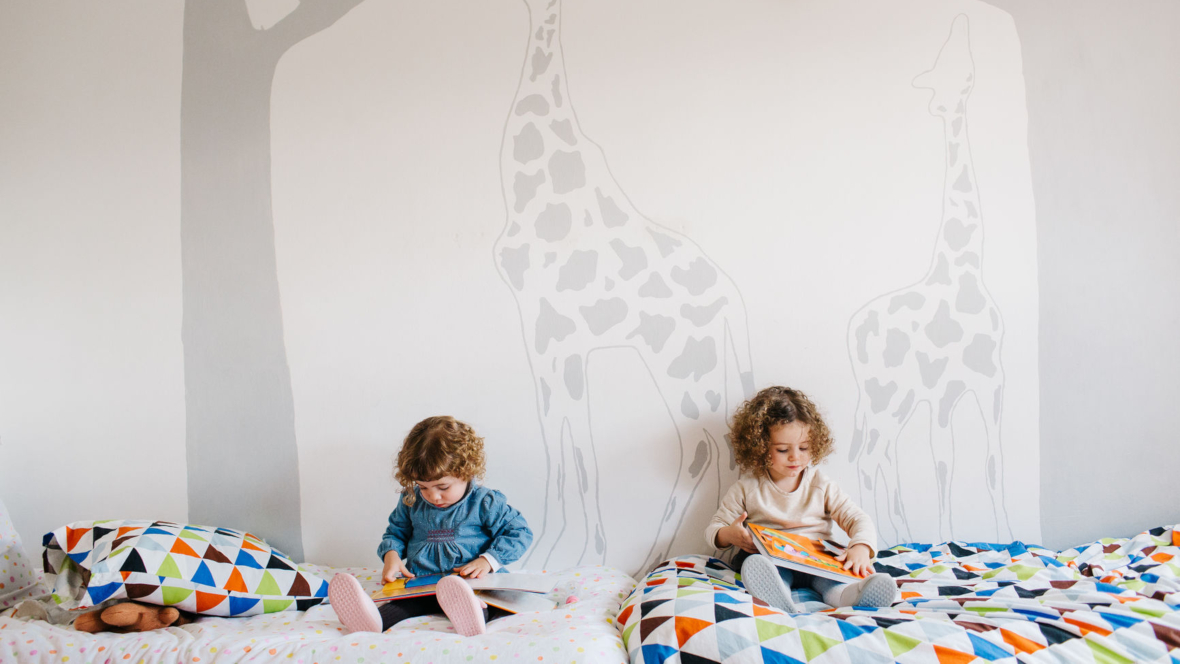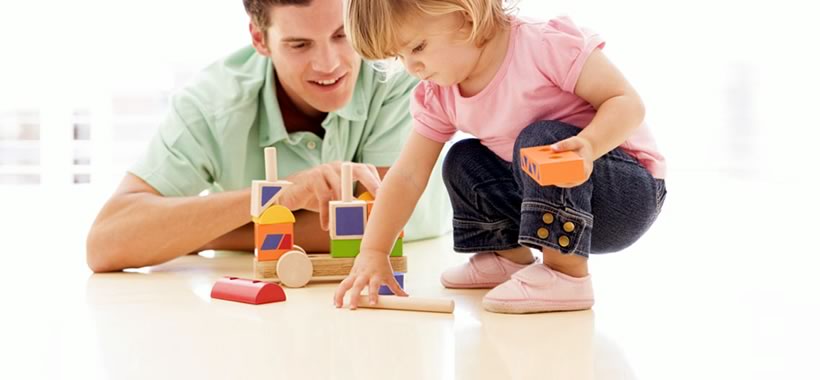Playing is the best form of learning, and yet many parents plan their offspring with ballet and English lessons & Co instead of just letting them play more. With these tips, all children learn to play alone – from their baby’s age.


Educators and neuroscientists alike agree that playing has an enormous impact Meaning of cognitive and social development – for a lifetime, but especially in childhood. You train activities and creativity, try out roles, consolidate your identity. The little ones have the most fun together with their parents, siblings and friends.
But it is also important that children learn to play alone, because this strengthens their ability to concentrate and independence. But what if the youngsters are not able to keep themselves busy? A tip in advance: nature is the best playground …
How babies play
Babies already “play” alone, for example by spending up to ten minutes on their hands and feet, their voice or baby toys like rattles. Young children manage to focus alone for 15 to 30 minutes. That the offspring disappear into your own room to play? Usually not before primary school age. However, it also depends on the character of the child how well and persistently they can play alone.
"Spoil the game" are often the parents
Children are actually born to play independently, but they often unlearn it later when they are constantly fun for their parents. Often out of guilty conscience about not spending enough time with their children, parents want to spend every minute together with an entertainment program. Helicopter parents in particular want to offer their offspring the best starting conditions for life, which is why educational games and timed timetables with ballet, English for kindergarten children and more are forced on the little ones early on. There is little time for free play.
This is exactly counterproductive, say Gerald Hüther and Christoph Quarch, because: Playing is the best form of learning. The brain researcher and the philosopher deliver with their book “Save the Game! Because life is more than functioning “is an urgent plea for playing. It also encourages adults to take a more playful approach to life – and education.


7 tips on how children learn to play alone
So there are several factors when children come together not yourself can employ freely. Fortunately, there are educational tips on how you can learn it again over time.
Create the right environment.
Children need enough play stimulation, but as little distraction as possible. Therefore TV and smartphone off! Even a tidy children’s room can help make children play alone – sometimes they simply need enough space.
Offer suitable toys.
Too much and not age-appropriate toys overwhelm children. Toys are ideal if they do not "only" specify a certain type of game. Cushions, blankets, boxes and old clothes are perfect for free play instead. Pssst: If you don’t make them available all the time, the attraction for the little ones is all the greater.
Hold back as much as possible.
Do not interrupt your child when they are already deep in the game and let them solve problems such as falling over building blocks themselves. With questions you can give short impulses or play along briefly and then withdraw again. By the way, small children often do not look as if they are busy, they only watch their surroundings intensively.
Lead by example.
Start parallel to, however not with to play with the child and then let them continue playing alone. From around three years of age, children understand that parents need a break and want to read a book by themselves – ideally, they will get one for themselves.
Provide your child with security.
Let your child know that you are close. It is especially important for babies and toddlers to play them alone, but not to leave them alone. When you leave the room, you can keep in touch.
Introduce regular "solo seasons".
Practice makes perfect, even when it comes to children learning to play alone. The ritual also gives the little ones security.
Verbally animate and empower your child.
"You can do it alone, give it a try!" Or "You recently built such a high tower when you played alone – would you like to try again?" – If you praise your child, playing alone will be easier.
RELATED ITEMS
-

Important for baby development: play alone »magazine»
Important for development: Let your child play alone now and again Children need to play together with their parents for their development,…
-

Children learn with ease – baby and family
Children are constantly discovering new things – and best of all, by playing. An expert explains how you can encourage your little one to play with…
-

Let your baby play alone! Baby and family
Babies can also keep themselves busy – if mom and dad let them. A developmental psychologist explains why the little ones have such freedom…
-

How babies learn to speak – language development in children
In the beginning was the Word? Well, actually there was more of a juicy scream. A baby’s speech development begins the moment it is born…
